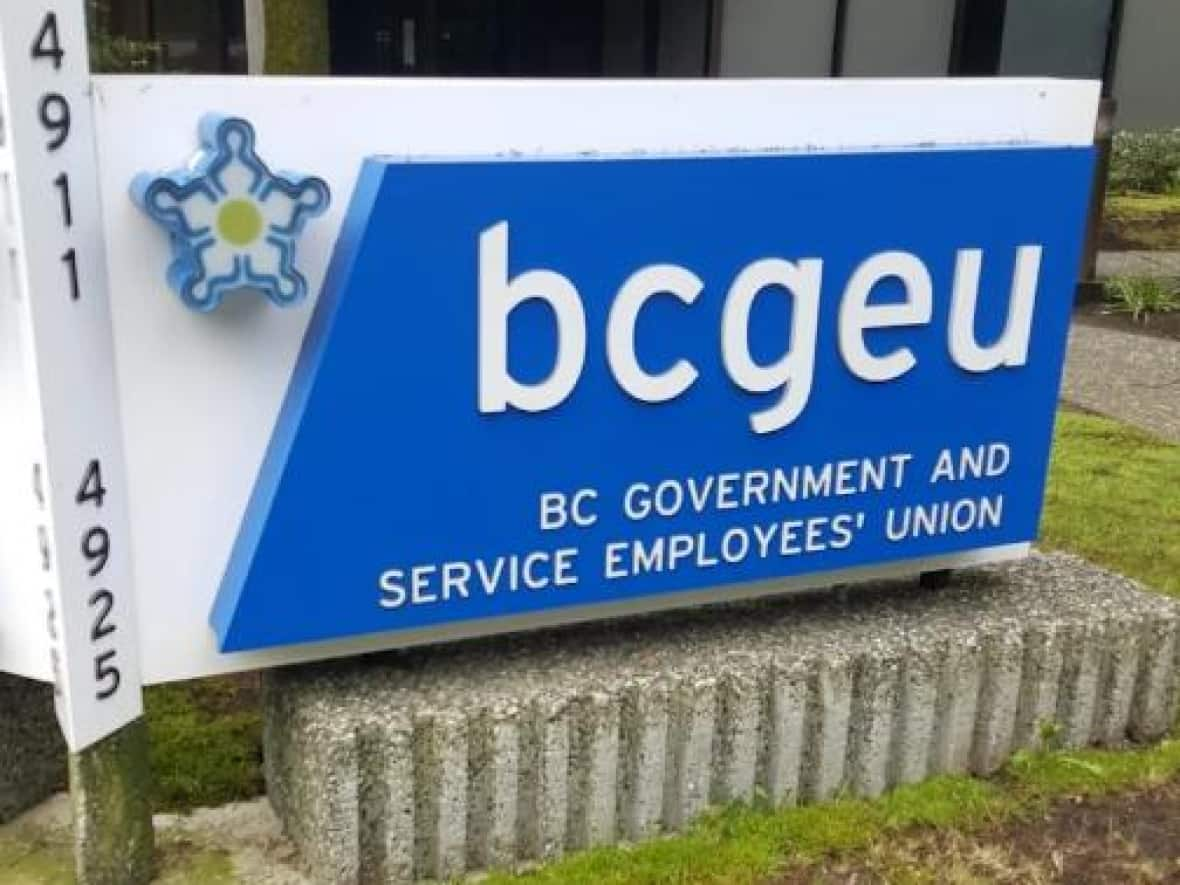B.C.'s largest public sector union issues 72-hours strike notice

The bargaining committee representing more than 33,000 public sector workers in B.C. issued 72-hours strike notice Friday afternoon following an impasse in negotiations with the province.
The British Columbia General Employees' Union says job action could begin as of 2:46 p.m.on Monday.
Nearly 95 per cent of union members who work directly for the provincial government — including wildfire fighters, social workers, sheriffs and correctional officers and employees in B.C. liquor and cannabis stores and warehouses — voted in favour of striking on June 22.
Stephanie Smith, BCGEU president and the chair of the union's public service bargaining committee, said members' top priority is wage protection amid high inflation.
"We're not asking for anything unusual here," she said.
"Minimum wage is now tied to rates of inflation, as it should have always been. And this is something that is afforded to politicians of all stripes in Victoria … Our members are simply asking for the same wage protections that are afforded to MLAs."
The most recent collective agreement between the bargaining unit and the Public Service Agency, which bargains on behalf of the province, expired on April 1. Negotiations began on Feb. 8 and reached an impasse on April 6.
The union and the government's bargaining arm, the Public Service Agency, met again in July, but talks collapsed.
The two sides got together earlier this week.
"Exploratory discussions were held, and the bargaining committee unanimously decided a return to the table would not be fruitful at this time," the union said in a statement.
In a statement, the Public Service Agency said it understands that workers are concerned about the effects of inflation and it is committed to reaching a fair agreement.
Smith said job action can take various forms such as an overtime ban or a work-to-rule action — where workers do exactly what's in their job description — or picket lines at non-essential services.
The Public Service Agency said that while it is uncertain how the union might initiate strike action, critical services will still be available. Prior to job action, the Labour Relations Board set essential service levels, ensuring that critical services continue.
Smith said a lot can happen before Monday afternoon.
"Seventy-two hours is a long time," Smith said. "We're always hopeful that the fact that we've issued the strike notice might compel the employer to invite us back."


